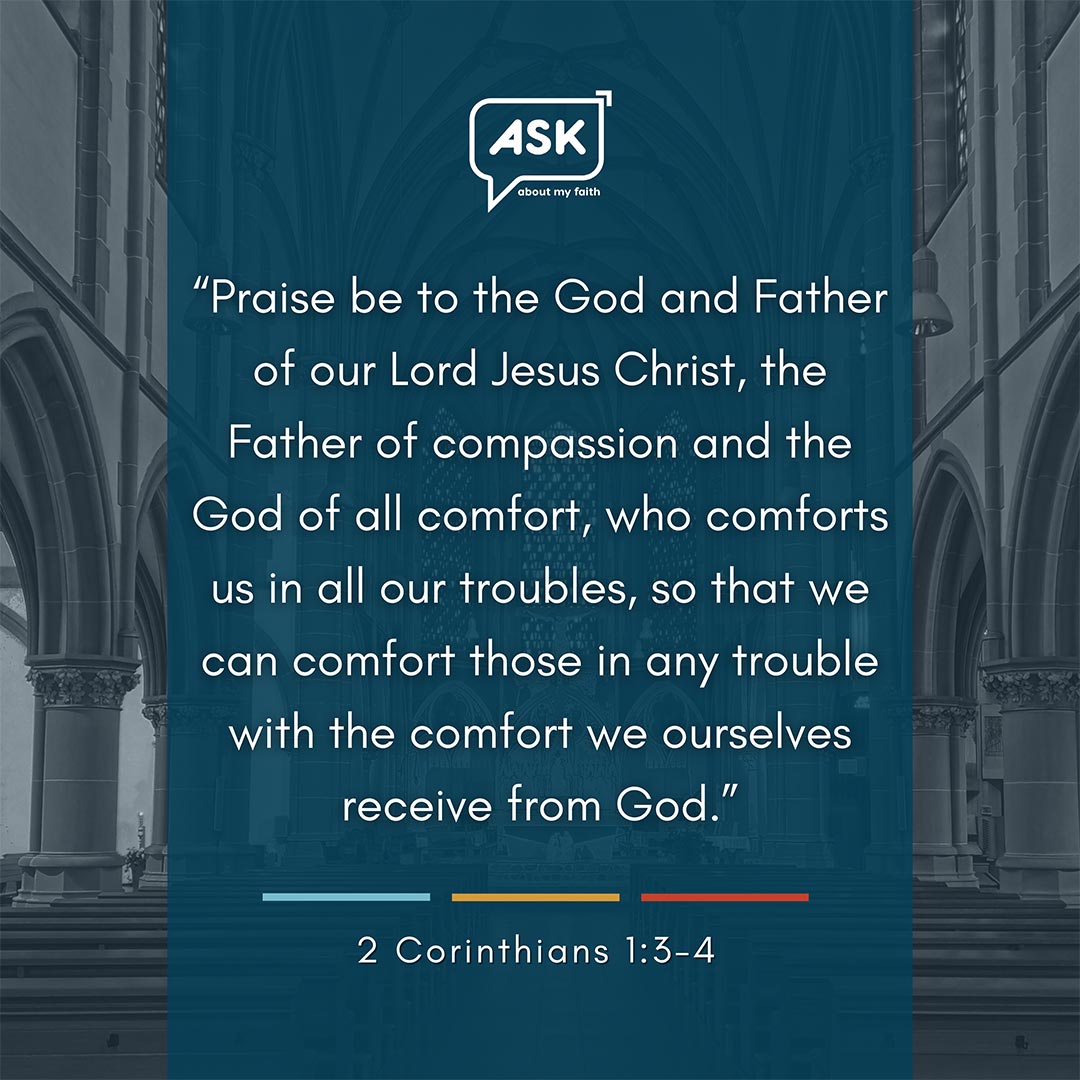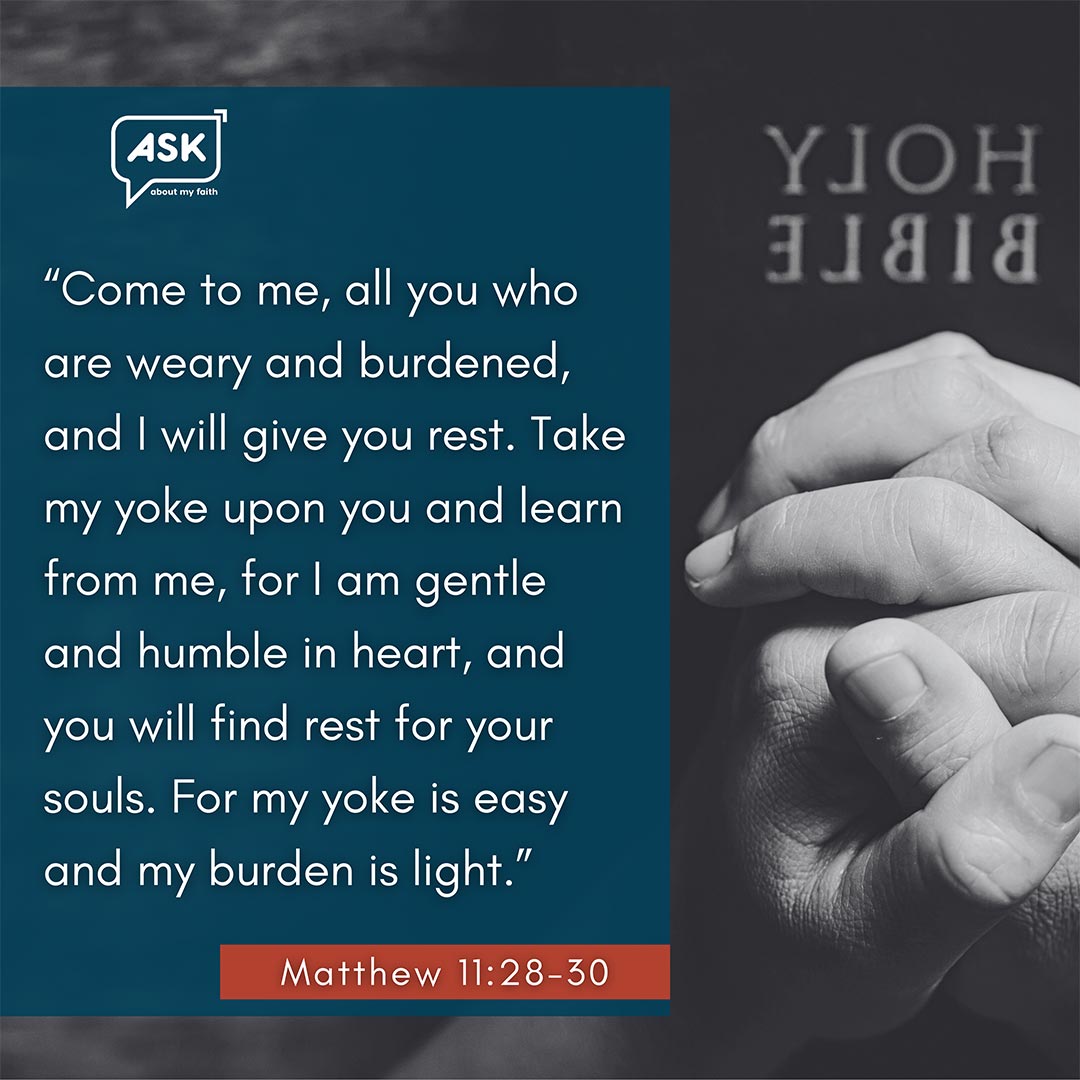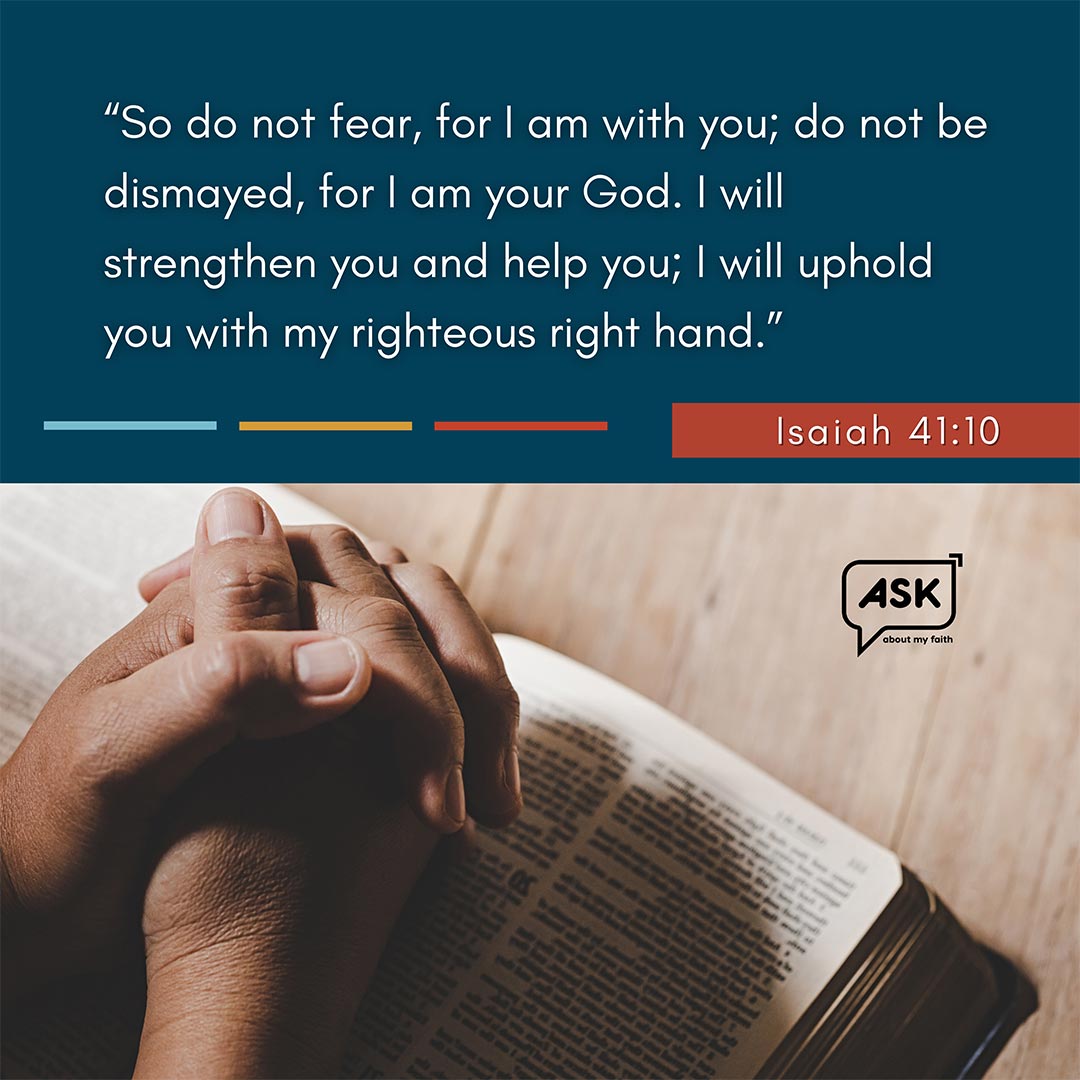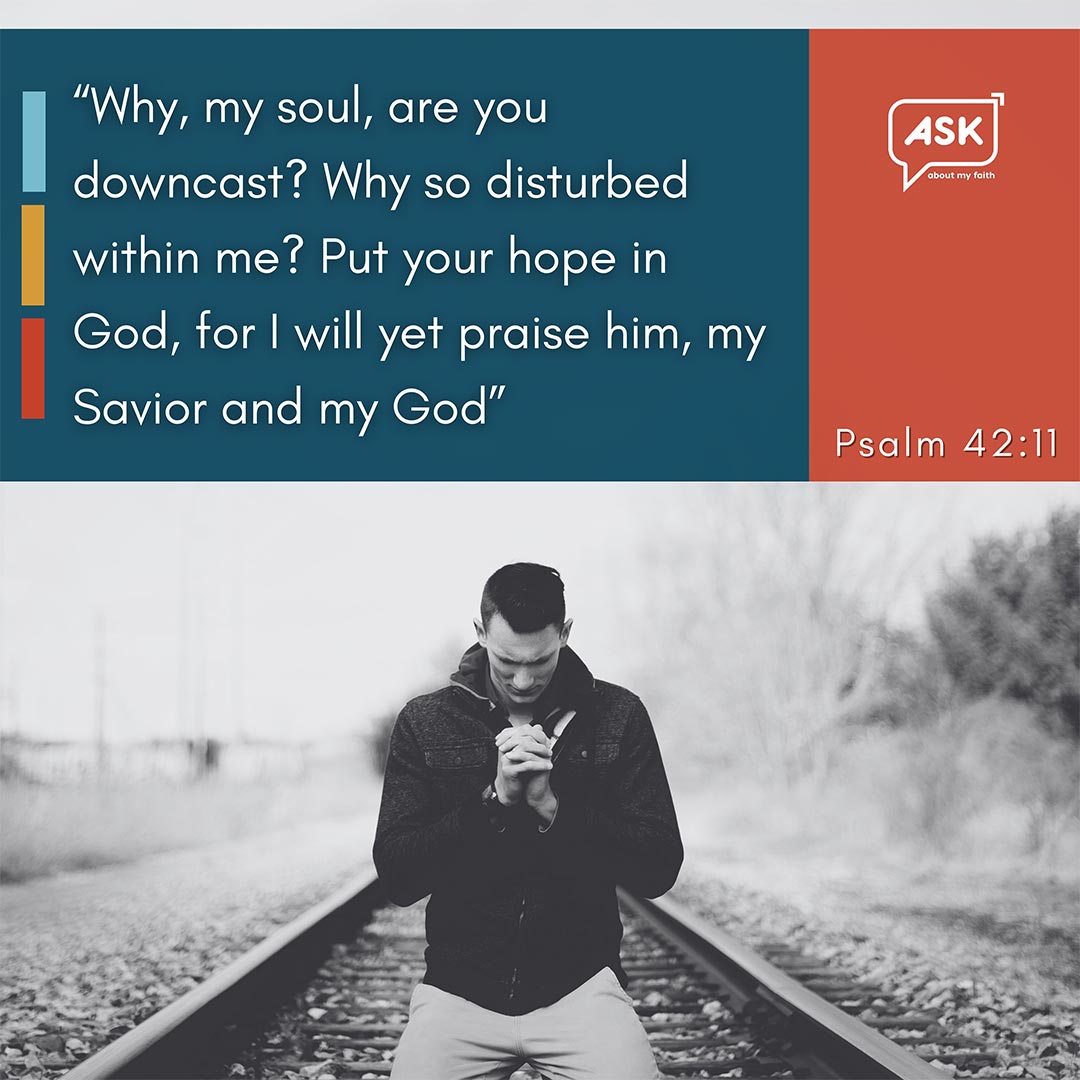Our guest today on the Ask About My Faith podcast is Terese Kessler-Bailey, a mom to two daughters, two Huskies, and a licensed mental health counselor and life coach who uses spiritual integration to help her clients experience freedom. As a warning to our readers, this conversation with Terese ranges on many mental health topics like discouragement, depression, anxiety, and suicidal ideation. In our day and age, people are asking questions like, “Why should I be alive?” and “Am I worth anything?” and we all want to help those who are struggling. At the Everyday Faith podcast, we believe that Jesus is the Healer who loves to bring health, hope, and wholeness to everyone. Join us as we learn more about the intersection of faith and mental health.
Should you or someone you know be struggling with suicidal ideation, please have them reach out for free help by either calling or texting 988 or visiting 988.com
What Does the Bible Say About Suicide?
If you’re wondering how to help a suicidal friend, you might be asking, “What does the Bible say about suicide?”
As you’re discovering what to do if your friend is suicidal, you may find yourself running to the Bible for ancient wisdom. Contrary to popular belief, the Bible mentions six people who committed suicide (Judges 9:54; 1 Samuel 31:4-6; 2 Samuel 17:23; 1 Kings 16:18; Matthew 27:5). While the Bible doesn’t shy away from telling these stories of pain, darkness, and intense hopelessness, the Bible never mentions the eternal consequences of suicide directly. Many speculate that those who commit suicide have committed murder, while others say there is grace for those who take their own life. There is no concrete Biblical answer about whether those who commit suicide will go to heaven or hell. So, as Christians, we must pray and come alongside those who are suicidal and show them the hope, love, and care that Jesus offers.
The Bible mentions several stories of people who reached the end of themselves and were very weary before God. Men like Elijah, Jonah, and even King David, were overwhelmed, anxious, and had reached the point of such depression that they could have cared less about their lives. Our guest, Terese Kessler-Bailey says,
“Many Biblical heroes cried out in despair: Job, Elijah, Moses, Jonah. They wanted to die. But when God gave them hope, they no longer said that. Suicidal ideation is a root cause of something – people are not born wanting to die. The truth is: We don’t want to die, we just want to stop the pain.”
The Bible is full of passages that offer comfort, grace, and care for hurting souls. However, if you’re wondering what to say to a friend who is suicidal, you might want to pause from speaking and see how you can help them through your actions. Bible verses to help a suicidal friend are found throughout the Bible, but in times of desperation and great pain, it’s a profound gift to help someone by showing them the love of Jesus rather than telling them about the love of Jesus. Simply being present and listening to them share what's going on can be the catalyst for healing.
“People in deep pain don’t need perfect words; they need connection. They need to know someone sees them, hears them, and values them—even in their suffering. This reflects both good mental-health practice and deep spiritual truth: that love heals through presence.”
Recognizing the Signs of Suicidal Thoughts
At the core of suicidal ideation is hopelessness. Hopelessness is when we experience deep despair and the absence of hope. When you or someone you know is saying things like, “Life is meaningless,” or “There’s no point in living,” or “I don’t want to be around anymore,” they are most likely struggling with suicidal ideation.
“Satan’s tactic is to make us enemies within ourselves. The bravest people are those who can sit with themselves — all parts — without contempt, shame, or blame. Compassion for self is the first step in healing trauma.” - Terese Kessler-Bailey
Some further signs of suicidal ideation in a friend are:
- They start looking up ways to end things and then talk about actually doing it.
- They voice deep hopelessness— feeling stuck, feeling like a burden, or voicing that they believe nothing will ever get better.
- They start to pull back from friends, family, and the hobbies they used to love.
- Their mood flips dramatically—one minute they’re super intense, the next they seem completely numb.
- They dive into risky or self‑destructive habits—things like binge drinking, drug use, reckless driving, etc.
- The change happens after they’ve just gone through a traumatic event: a loss, money troubles, a breakup, or any kind of trauma.
- Sometimes there’s no outward sign at all; trust your gut as you help your friend!
A couple of extra red flags you might want to keep an eye on:
- If you notice sudden changes in behavior or personality— things like becoming unusually quiet, secretive, or overly talkative about death.
- Giving away personal items (jewelry, photos, money) without a clear reason.
- Talking about feeling like a burden to specific people, especially if they name them.
- Expressing a desire to “escape” or “be free” in a way that sounds like more than just a metaphor.
- Posting or sending messages about death on social media, texts, or emails—especially if they’re new or unusually graphic.
If you notice any of these signs in your friends or loved ones, reaching out with empathy is a great way to help a suicidal friend. As you do so, you can encourage them to get professional help and let them know you’ll be with them on the journey. Sometimes, sending a simple text like “I’m here for you” can open the door to an honest conversation and start the journey to getting them the support they need.
What to Say & What Not to Say
So, now that you're aware of the signs, what do you do if your friend is suicidal? In this portion of the blog, we’ll discuss what to say to a suicidal friend and how to help someone who is feeling suicidal. Here are some tips from our friend, Teresse Kessler-Bailey, on what to do if your friend is suicidal:
What to Say
“I can see that you are hurting.”
“I wish you could see yourself the way I see you.”
“I can see your pain.”
“Life doesn’t have to be this hard.”
“Thank you for trusting me with this. Let’s find some help together so you don’t have to
suffer alone.”
“I believe in you.”
Our role is not to erase another person’s pain but to sit beside them in it, helping them remember that they are not alone and that healing is possible. These words mirror God’s heart—gentle, kind, and patient. As 2 Corinthians 1:3–4 says:
What NOT to Say:
Avoid comments that contradict or minimize their feelings, such as:
“You shouldn’t feel that way.”
“Others have it worse.”
“It’s all in your head.”
“Just snap out of it.”
Comments like this are not helpful to a friend who is suicidal. Speaking words of faith, hope, and love (and then showing your love in practical, actionable ways) is essential to changing the tide in those struggling with hopelessness and suicidal ideation.
Speaking Words of Faith & Hope
Have you ever had someone say the right thing at the right time? It can change everything for the better. As you’re learning how to help a suicidal friend, you’ll find that speaking words of faith and hope can bring light into even the darkest moments. During our interview with Christian counselor, Terese Kessler-Bailey, she spoke about the power of being a safe, attentive listener where friends who are feeling suicidal or hopeless can openly process through the tough topics and heavy experiences. As you’re preparing to speak and encourage a friend, you may be wondering what to say to a suicidal friend. Preparing some bible verses to help a suicidal friend can be incredibly impactful.
Bible Verses to Help a Suicidal Friend
Bible verses to help a suicidal friend are all throughout the book of Psalms. The Psalms are full of honest, unfiltered, and sometimes intense process from the author. However, they always end in hope, trust, and faith in God and often speak of God’s care for us, even in the hardest of times.
Jesus is speaking directly to those who are heavy and overwhelmed in this Bible verse to help a suicidal friend. Jesus understands suffering, despair, and anxiety. Before He went to the cross, it says that Jesus even sweated drops of blood due to the agony He’d face on the cross (Luke 22:44). It's helpful to know that Jesus understands hopelessness and despair and that His love can help us overcome the pain we experience.
Did you know that Jesus died for you? Sometimes, surrendering to God happens during the hardest of moments in our lives. Learn more about Jesus, the God who saves and heals, in our blog: This is For You
Bible verses for a suicidal friend offer supernatural hope to trust in God and receive His loving presence. You can learn more about God’s love for you in our blog: 15 Bible Verses About God’s Love For You
This Bible verse to help a suicidal friend addresses the soul as if it were a living character. The phrase ‘Why are you downcast?’ invites us to process with God. However, the triumphant moment in this passage is that we remember our God is an everlasting hope and a redeeming Savior who is able to help us in our time of weakness (2 Corinthians 12:9).
To learn more, read our blogs about peace: How to Find Peace in Stressful Situations & How to Have Joy & Peace in Difficult Times
Conclusion
As you can see, the Bible shows us that Jesus is able to empathize with us in our weakness (Hebrews 4:15). He has not left us as orphans (John 14:18), but He has given us His Holy Spirit to help us, guide us, and lead us along the path of healing. As you’re discovering how to help a suicidal friend through Bible verses, words of encouragement, and practical tools like counseling, community, and pastoral care, we believe that you’re going to see a turnaround in the friend you're praying for. Stay connected to them, even in the place of deep grief, and show them they are seen, heard, valued, and loved. Jesus still brings freedom, still heals the sick, and still delivers the bound and through community and prayer, we are believing that you and your friend will see hopelessness leave and experience the love of God instead. Here is a short prayer you can pray over a friend who is feeling suicidal to help them in their time of need.
A Prayer for A Suicidal Friend
Father, I thank You that You see trouble and grief and You take it in hand (Psalm 10:14). Those who are hurting and feeling helpless can commit themselves to You, and You have promised to be their protector and redeemer. In this time of trouble, I ask that You would minister to my friend, meeting them in supernatural ways, through dreams, visions, and Bible verses to show them just how high, how deep, and how wide Your everlasting love is for them (Acts 2, Ephesians 3:18). Deliver them from the weight of this darkness and shine forth Your marvelous light (1 Peter 2:9) By faith, I ask that they would live, and not die, and that You would be their help in this intense trouble (Psalm 118:17) Thank You that You hear me when I pray. Let Your kingdom come in this situation. In Jesus’ name, amen.
For immediate, free help for those struggling with suicidal thoughts, please don’t stay silent—help is available right now by calling or texting 988 or visiting 988.com.















